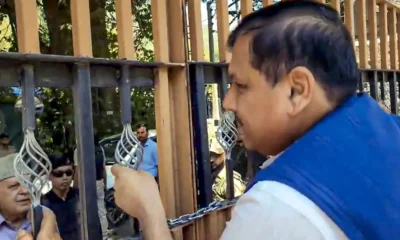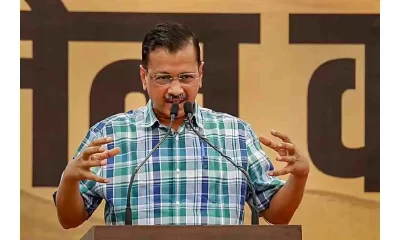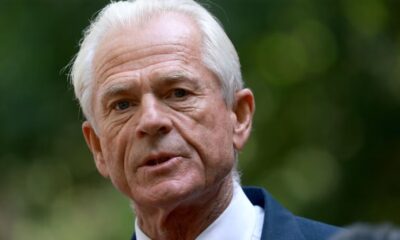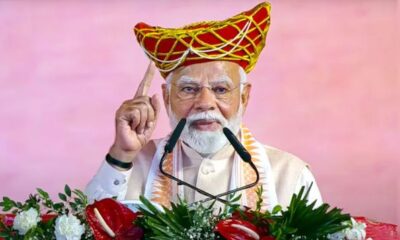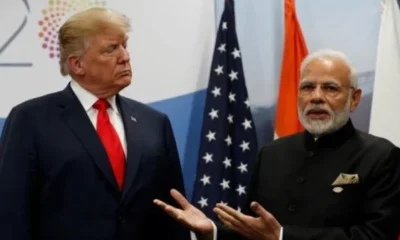[vc_row][vc_column][vc_column_text]Former bureaucrat and old Kashmir hand Wajahat Habibullah is extremely disturbed by the recent developments in the Valley. He has brought out a book tragically titled, My Kashmir: The Dying of the Light. In an interview with Rashme Sehgal he examines why things have gone so wrong in the state.
Why has the situation in Kashmir been allowed to deteriorate to this extent?
Last year I visited the valley in the month of March. The atmosphere was so peaceful. I went to south Kashmir and wandered around the villages feeling very comfortable and safe. If something was simmering, I could not sense it.
The death of Burhan Wani sparked off a feeling of outrage, and of course, (so did) the use of pellet guns (by the armed forces) which have maimed and killed so many children. We are dealing with a new generation. With the earlier generation, we engaged with the Hurriyat, with the political leadership promising greater autonomy and so on. But today, the situation is very different. We seem to have lost an entire generation.
The younger generation does not want to engage in any kind of dialogue?
In 2010, a lot of young people took part in an agitation and many of them were arrested. I was in touch with Omar Abdullah. He was all set to resign and I persuaded him not to do so. His government had just passed the Juvenile Justice Act which stipulated that young people who were arrested would be lodged in juvenile homes. His government could have ensured that these children were lodged in vacated police or army barracks converted into juvenile homes. Instead these kids were arrested under the Public Safety Act and put in jails with convicted murderers and other criminals. This provided the fuel. No one in the government had foreseen these consequences. At that time Srinagar was under a lady commissioner. I had told her that she must reach out to these young boys, they will abuse you but even if they abuse you, they will feel somebody cared for them. She did not listen to me.
Many of these young people have gone on to lead this present agitation. This is what happened with Burhan Wani. When he lost his elder brother, he joined a terrorist organisation.
I have been advocating the restoration and strengthening of the democratic processes, the strengthening of panchayat institutions and so on but these and other groups are not being allowed to function. This has left the present agitators disenchanted with democracy to the extent that they would like to leave India.
Would they like to be part of Pakistan?
They have no clarity. They are bright, intelligent people. Nothing is talked of—democracy has been given a free flow.
Why is the word azadi so frightening? Why are people so scared with the word azadi? We celebrate August 15 as Independence Day. The Urdu word for independence is azadi. The political leadership is too terrified to reach out to these people. The elected politician is terrified. Nor has the bureaucracy made any attempt to reach out to the people. The system has not been allowed to reach out to the public. The whole structure has not been allowed to function.
The younger generation has seen the same lot of people being elected and all they have done is oppress them. Both Mehbooba Mufti and Omar Abdullah wanted the removal of AFSPA—such a law should have no place in a democracy but this was not done. The Public Safety Act should have been amended to ensure it cannot be applied to children.
What is your reaction to the video of a stone-pelter being tied to an army jeep and being paraded?
It’s very reprehensible. The security forces must remember that they are dealing with very young people.
During the 90s, when insurgency broke out, leaders were not necessarily educated unlike this younger generation which is very educated. We could dialogue with them but they are in the throes of a tremendous sense of disillusionment. Their target is the country itself.
People say the only person who can save the situation is National Conference leader Farooq Abdullah?
Farooq has a good grasp of the situation. I have discussed the matter with him. He understands the situation. He knows what to do. But that is not good enough. He cannot do it alone. Today the entire leadership is under a challenge. Those who stand for India must stand together.
It is well known that Kashmir is being run by the Ministry of Home Affairs. Why are they not doing anything?
Since the 60s, the state has been run by the Ministry of Home. Though governance depends on the chief secretary and the chief ministers, some CMs are stronger, some not so strong. Ever since the Hazratbal agitation, the Ministry of Home Affairs’ running of this state has been intensified.
Was the ministry unaware that the leadership has shifted to this younger lot?
These young people have been born after 1990 and they have seized the leadership. They have spread to the rural areas and to every corner of the valley.
When Jagmohan was Governor of J&K, he kept imposing curfew in the cities. I had argued with him that by doing so he was allowing insurgency to move to the rural areas. With this younger generation, it has now expanded to rural areas which have become the fountainhead of insurgency.
This problem started with Mufti Mohammed Sayeed when he was Home Minister. He was never the leader that the media portrayed him to be and many of these problems arose during his tenure.
Today’s situation is not a repeat of the past, in many ways it is much worse.
I have been covering J&K from 1996. But by 2009, when I went to the valley to cover the state elections, I found a tremendous change on the ground. Every village had a young man who could be a Wahabi from across the border who was monitoring what the villagers were telling me. And this was something I experienced across 15 to 16 villages.
If indoctrination was taking place for which our neighbours were responsible, what were we doing? Why was our bureaucracy, the DCs, tehsildars and all those people working in the field not reaching out to our young people?
I was speaking to Shah Faizal (he came first in the IAS exams in J&K), who is currently director in the education department and he said this kind of outreach is not taking place any more. The police have been asked to confront these young people since the civil authorities are not going out any more. If we are not willing to engage them, then they will want to select their own sarkar.
What is amazing is that the central government has chosen to remain quiet over these goings-on. This is all the more surprising because Minister of State Dr Jitendra Singh who hails from Jammu is the minister in charge of the prime minister’s office?
Yes. Dr Singh’s own brother is one of the main advisers of Omar Abdullah. Singh would have a very good understanding of the situation.
Surely the Indian government realises the geo-political implications of what is going on.
Our own children are being killed. A complete polarisation has taken place in the valley. What images are we sending out to the world—the security forces pitted against young people, with nothing in between. Everything in between has been washed away or become irrelevant.
The situation has become very complex, especially with the new US President in office.
Yes, the situation is very difficult. I cannot give a fixed answer… Trump will not wait for the situation to get out of control (in the valley), he will act before that. Nikki Haley, the US permanent representative to the UN, has already given an indication by saying the US is willing to help de-escalate tension between India and Pakistan. India needs to tune its own foreign policy towards what is happening around it. I have grave apprehensions about the future.
Do the Kashmiris fear that the government is moving towards a Hindu Rashtra?
That is what Farooq Abdullah has also said. This is part of the whole disillusionment with India and Indian democracy, this is all part of it. Even if AFPSA is removed, young people believe they will only be second class citizens here. This is what Pakistan has been telling them all along. Now Pakistan is saying ‘dekho kya ho raha hai’. When Kashmir had acceded to India, the choice was not between a Hindu and a Muslim state but a secular state.
Farooq Abdullah, son and heir of Sheikh Abdullah who had chosen to accede to India, has said on record that these are not the terms on which we had acceded. Certainly the national leadership has to understand this.
PM Modi has repeatedly said these (stone pelters) are our own people, our own children but we should treat them like that, too.
Image courtesy: PIB[/vc_column_text][/vc_column][/vc_row]
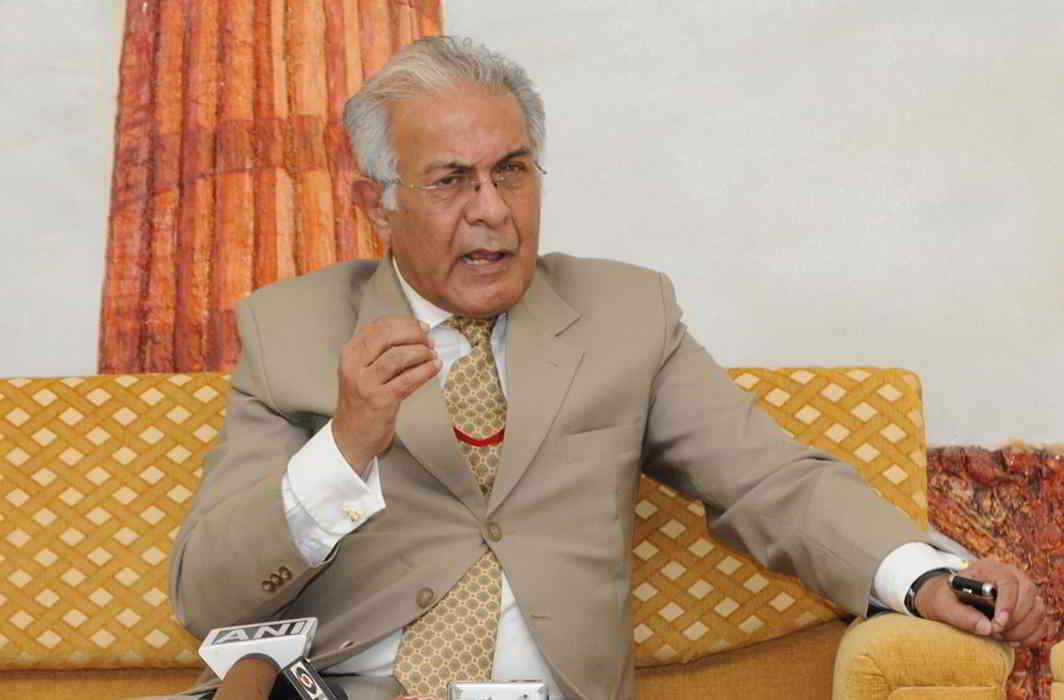

 Latest world news16 hours ago
Latest world news16 hours ago
 Latest world news16 hours ago
Latest world news16 hours ago
 Latest world news15 hours ago
Latest world news15 hours ago
 India News16 hours ago
India News16 hours ago
 India News7 hours ago
India News7 hours ago
 Latest world news6 hours ago
Latest world news6 hours ago
